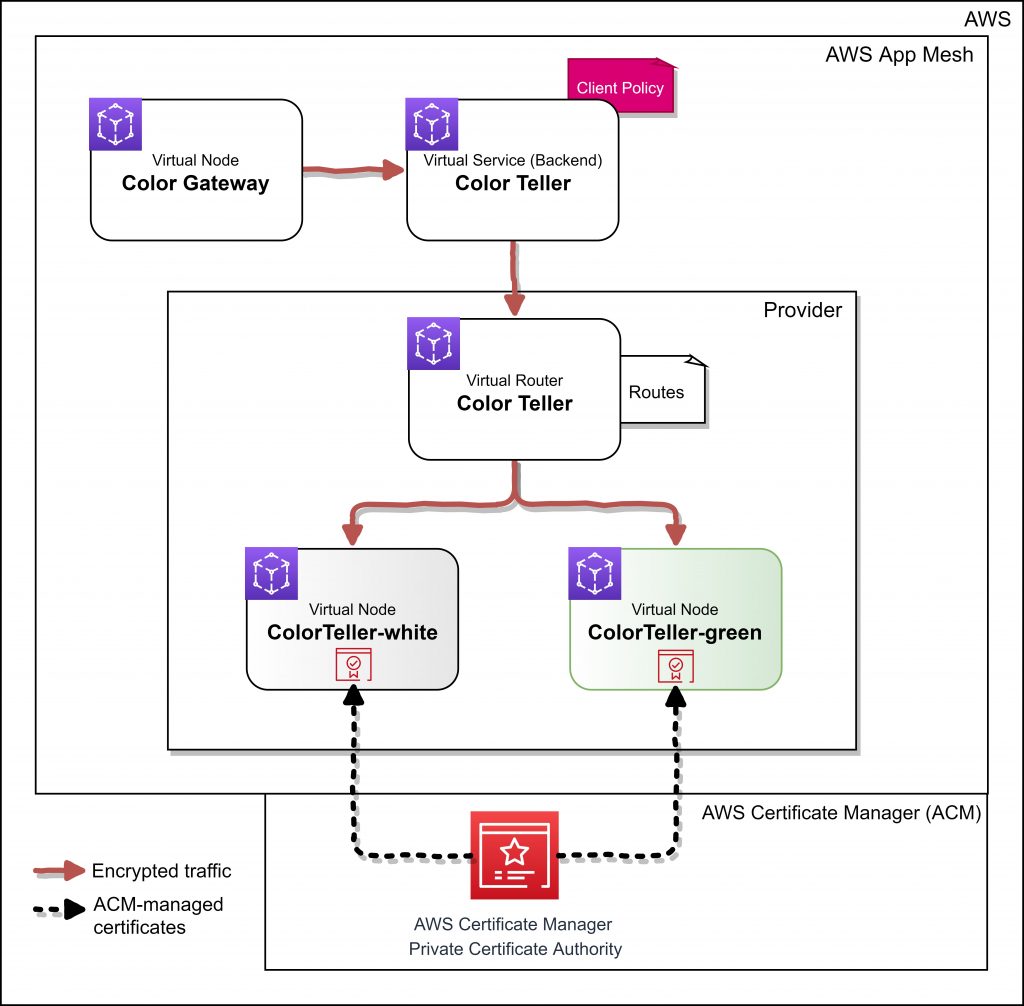Containers
Category: Networking & Content Delivery
Getting started with AWS App Mesh and Amazon EKS
In this blog post we explain service mesh usage in containerized microservices and walk you through a concrete example of how to get started with AWS App Mesh with Amazon EKS. Increasingly, AWS customers adopt microservices to build scalable and resilient applications, reducing time-to-market. When moving from a monolithic to a microservices architecture, you break […]
Introducing Ingress support in AWS App Mesh
AWS App Mesh is a fully managed service mesh that provides application-level networking to make it easy for your services to communicate with each other across multiple types of compute infrastructure. App Mesh standardizes how your services communicate, giving you end-to-end visibility and ensuring high availability for your applications. Until now, App Mesh features have […]
Maintaining Transport Layer Security all the way to your container: using the Application Load Balancer with Amazon ECS and Envoy
This post is contributed by Sri Mallu, Re Alvarez-Parmar, and Sahil Thapar Application Load Balancer has been an instrumental element when it comes to building highly available, scalable, and secure applications. AWS customers can rely on ALB to perform functions that have been traditionally implemented in application’s code. Let’s take connection security as an example, […]
Enable traffic encryption between services in AWS App Mesh using AWS Certificate Manager or customer-provided certificates
Today, we announce the general availability of an AWS App Mesh feature that enables traffic encryption between services using AWS Certificate Manager (ACM) or customer-provided certificates. We sought feedback from our customers last year through the AWS App Mesh roadmap issues #38 and #39 and the features were made available on the AWS App Mesh […]
Access Logging Made Easy with AWS App Mesh and Fluent Bit
I’ve found that the term microservices can have different meanings and benefits depending on who you talk to. However, the one benefit where I’ve typically found consensus is that microservices allow your teams to have the freedom to choose the best tool for each job. Meaning, microservices architectures shouldn’t follow a “one size fits all” […]
App Mesh Integration with AWS ALB Ingress Controller
AWS App Mesh is a service mesh that provides application-level networking to make it easy for your services to communicate with each other across multiple types of compute infrastructure. App Mesh standardizes how your services communicate, giving you end-to-end visibility and ensuring high-availability for your applications. The AWS ALB Ingress controller is a controller that […]
AWS CodeDeploy now supports linear and canary deployments for Amazon ECS
AWS CodeDeploy has extended blue/green deployment support for Elastic Container Service (Amazon ECS) to include canary and linear deployments for applications hosted on AWS Fargate or Amazon Compute Cloud (Amazon EC2). Blue/green deployments are a safe deployment strategy provided by AWS CodeDeploy for minimizing interruptions caused by changing application versions. This is accomplished by creating […]
Securing EKS Ingress With Contour And Let’s Encrypt The GitOps Way
This is a guest post by Stefan Prodan of Weaveworks. In Kubernetes terminology, Ingress exposes HTTP(S) routes from outside the cluster to services running within the cluster. An Ingress can be configured to provide Kubernetes services with externally-reachable URLs while performing load balancing and SSL/TLS termination. Kubernetes comes with an Ingress resource and there are several controllers that […]
EKS VPC routable IP address conservation patterns in a hybrid network
Introduction Our customers are embracing containers and Kubernetes/EKS for the flexibility and the agility it affords their developers. As environments continue to scale, they want to find ways to more efficiently utilize their private RFC1918 IP address space. This post will review patterns to help conserve your RFC1918 IP address space with your EKS pods leveraging […]
Autoscaling EKS on Fargate with custom metrics
This is a guest post by Stefan Prodan of Weaveworks. Autoscaling is an approach to automatically scale up or down workloads based on the resource usage. In Kubernetes, the Horizontal Pod Autoscaler (HPA) can scale pods based on observed CPU utilization and memory usage. Starting with Kubernetes 1.7, an aggregation layer was introduced that allows third-party […]








